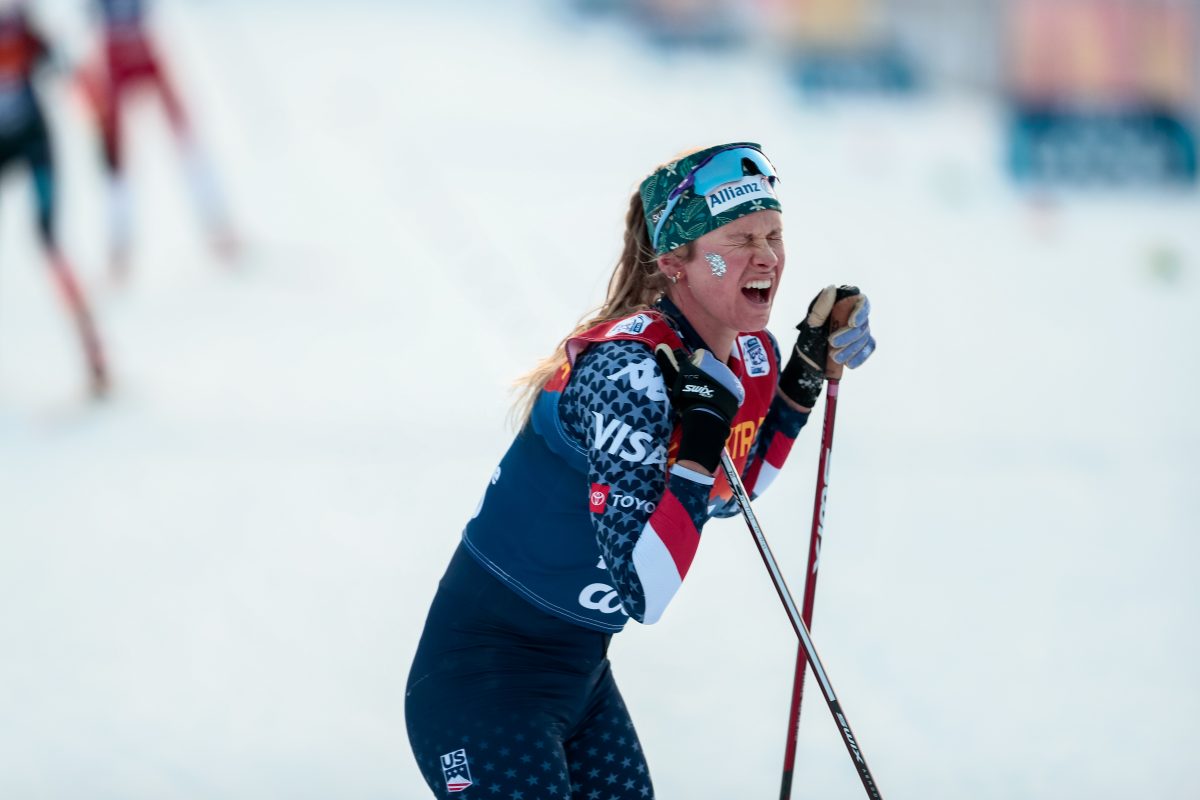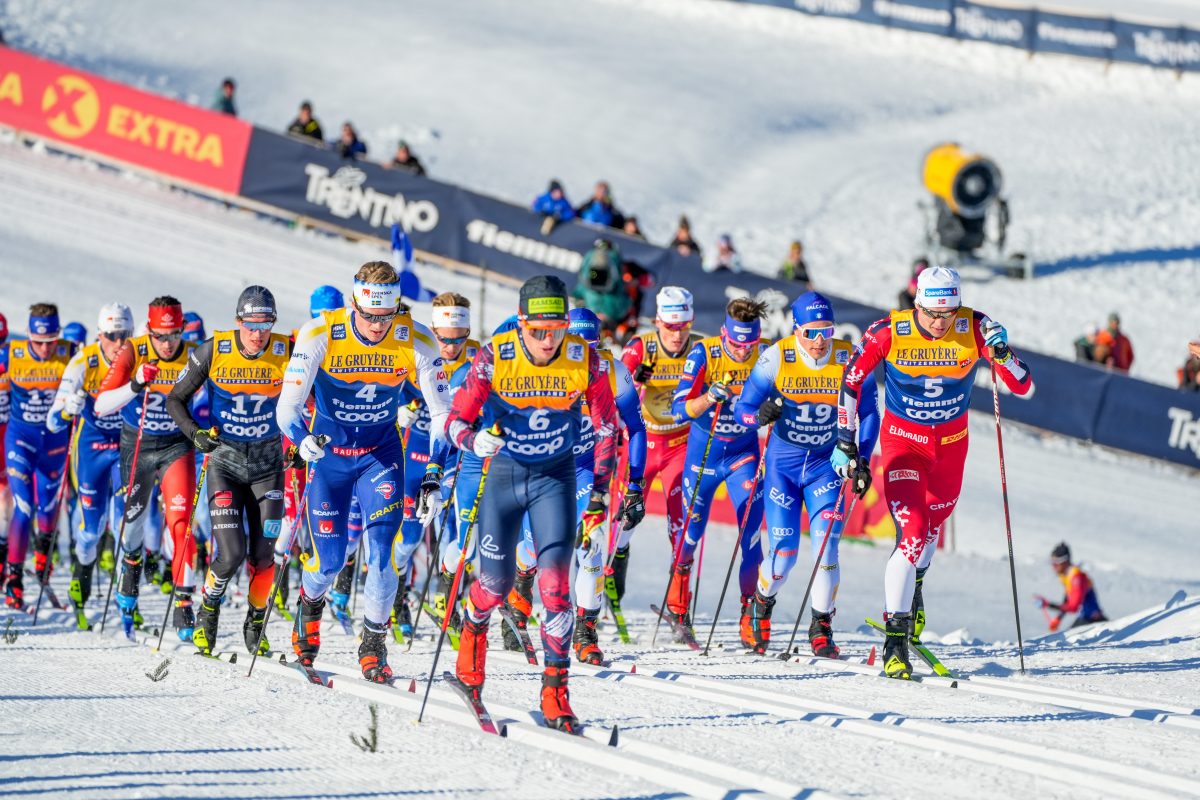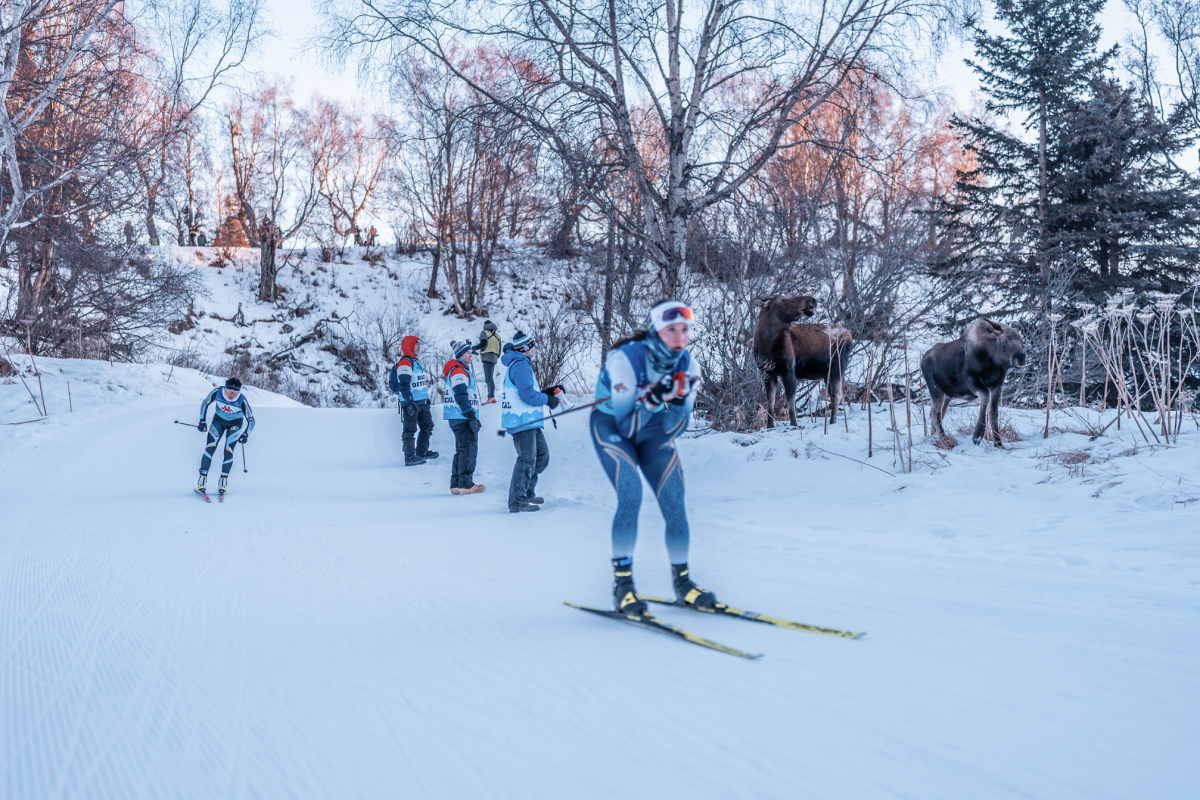
On July 21, University of Vermont junior Scott Patterson became the youngest winner of the Crow Pass Crossing, a grueling 24-mile backcountry trail race in Girdwood, Alaska. With a winning time of 3:05:16.7, the 20-year-old survived thousands of feet of climbing, treacherous and overgrown terrain, a few river crossings, and the ever-present danger that “you could literally run right into a bear” — clearly, a win that signifies Patterson is in pretty good shape.
But the race was more important to him than off-season races generally are. It was one of several that Patterson signed up for this summer to specifically test his fitness and build back his racing confidence on the heels of what he calls “an extremely disappointing ski season.”
Within the first 500 meters of the Williams carnival 10 k last February, Patterson knew something was wrong. He was skiing at what was supposed to be his usual race pace, but his body simply didn’t have the energy to sustain it for more than half a kilometer.
The low point came partway through what had already been an subpar sophomore season and prompted Patterson to take time off to figure out how to get healthy again.

“Last year was the first since I really began seriously training that I have not experienced significant increases in fitness and results,” Patterson said.
As a freshman the year before, he had been named the Eastern Intercollegiate Ski Association (EISA) rookie of the year, picking up two wins and four other podium finishes in his first year as a college skier. He finished eighth and 20th in the 10 k and 20 k, respectively, at NCAAs.
As a sophomore, Patterson was suddenly struggling through regular-season carnivals.
“About midway through December I started to notice problems with how I was racing and how I was feeling especially at higher intensities,” he said.
Patterson ruled out overtraining fairly quickly, but it wasn’t until April that he was able to fully resolve his health issues and began regaining fitness. Meanwhile, the season had continued and finished without him; his teammates at UVM won the 2012 NCAA championship. It was just the post-season scenario every college athlete envisions, but Patterson was on the sidelines.
Determined to help the Catamounts to a repeat national title in 2013, the Alaska native returned to Anchorage this summer set on using the time to regain his old form. To do this, he signed up for an unusually high number of mountain running events, triathlons and bike races to test himself throughout the summer. The Crow Pass Crossing was his most recent test, and his second year entering the event. Unlike previous summers when he’d train straight through summer races, Patterson specifically focused on Crow Pass.
“This year I approached the race a little differently,” he said. “After racing it once, I knew better how my body would behave. After an extremely disappointing ski season, I signed up for more races this summer and actually put in specific training for them, especially on Crow Pass.”
His preparation consisted mainly of doing more and longer trail runs. “This was something both enjoyable and beneficial for later racing,” Patterson said. “I made sure I trained so that I was ready for it, but not to the extent that would not also be beneficial for skiing.”

The work paid off; just over three hours after leaving the start line on the morning of July 21, Patterson won Crow Pass against a challenging field.
“I had high expectations going into the race, but I also knew that anything could happen over 24 miles depending on how everyone was feeling,” he said.
The outcome also depended on avoiding injury. With slippery and overgrown terrain to contend with, Patterson wasn’t the only one to leave blood out on the course. On wobbly legs in the last three miles, he ran the final section of the race unchallenged, having dropped fellow leaders Matthew Adams and Matias Saari after crossing a waist-deep Eagle River.
“The final miles seemed to drag on until the last long gradual uphill to the finish,” Patterson said. “Luckily I have never had anyone around me at that point because battling for the finish would be rather painful.”
Adams ended up coming in second, 3:22 behind Patterson. Third-place finisher Andrew Arnold, who is a frequent training partner of Patterson’s, came in at 3:18:31.4.

As Patterson continues to build back fitness and confidence through the rest of the summer, he has his sights ultimately set on a junior season and maybe a few key championships — U23s, NCAAs, SuperTour finals. When he’s not working as a mechanical engineering intern at an Anchorage firm, he’s been training with his junior club, Alaska Winter Stars.
“My training is going well,” Patterson said. “We generally get a good group of college skiers returning…as well as younger skiers looking for fast training partners.”
As the end of August approaches, college skiers all over the country look towards heading back to school. Patterson returns to Vermont on the twenty-first, and will be competing in the Race to the Top of Vermont the day before classes begin.
Audrey Mangan
Audrey Mangan (@audreymangan) is an Associate Editor at FasterSkier and lives in Colorado. She learned to love skiing at home in Western New York.



